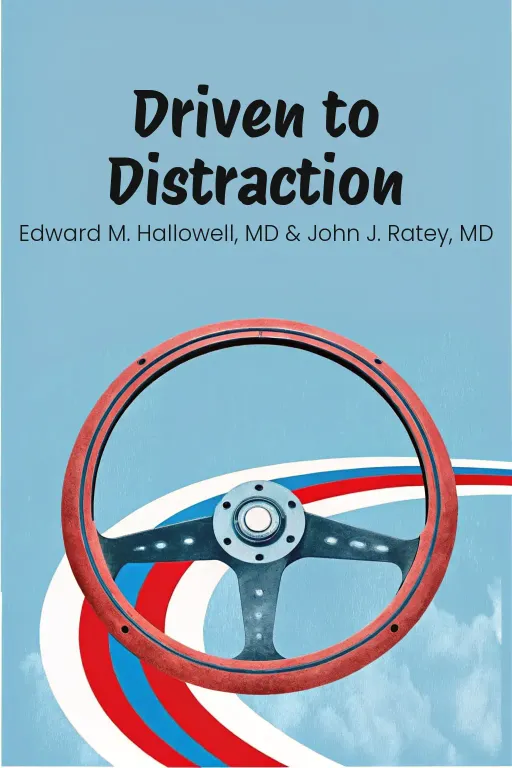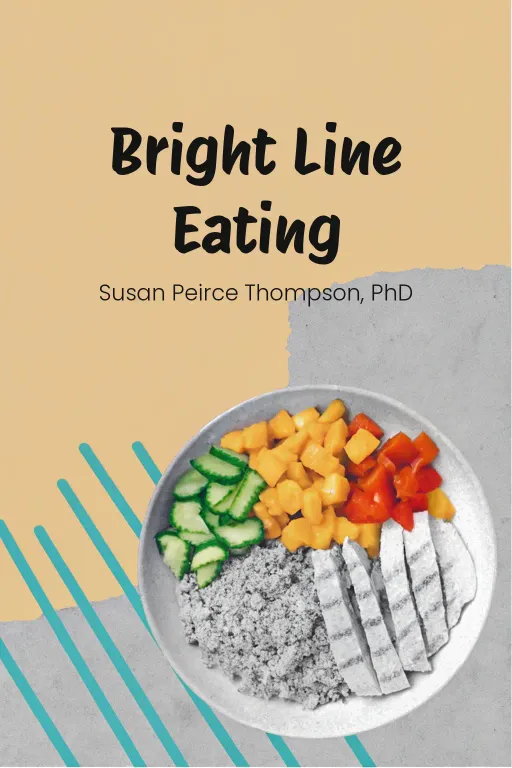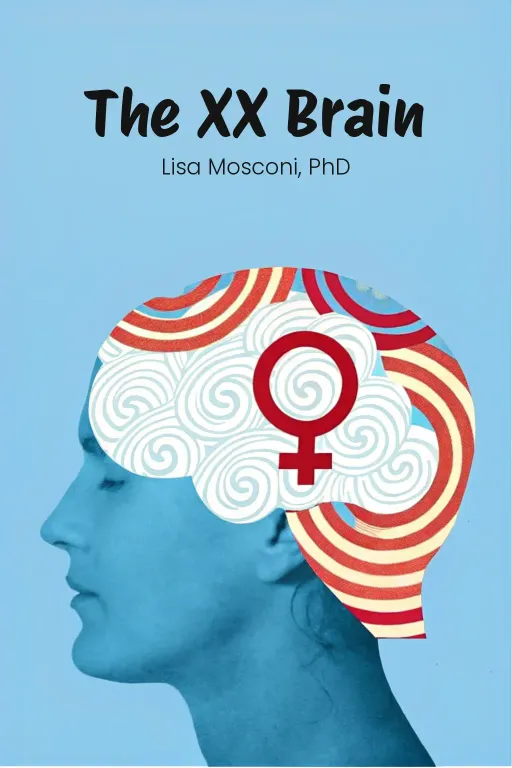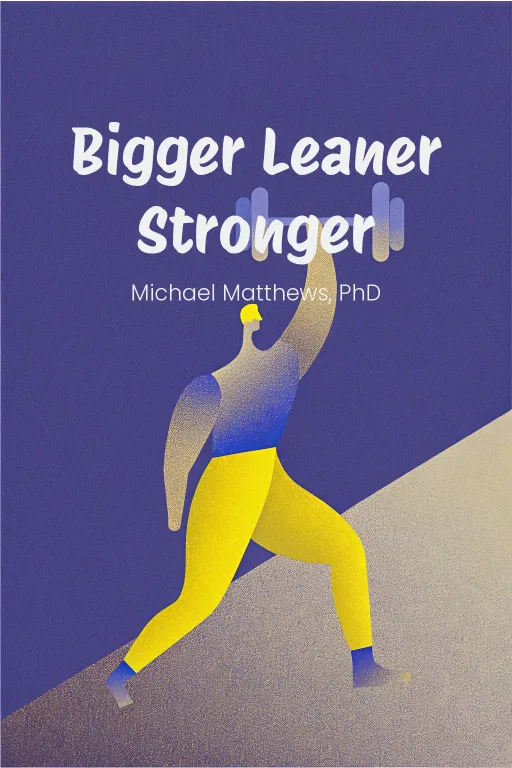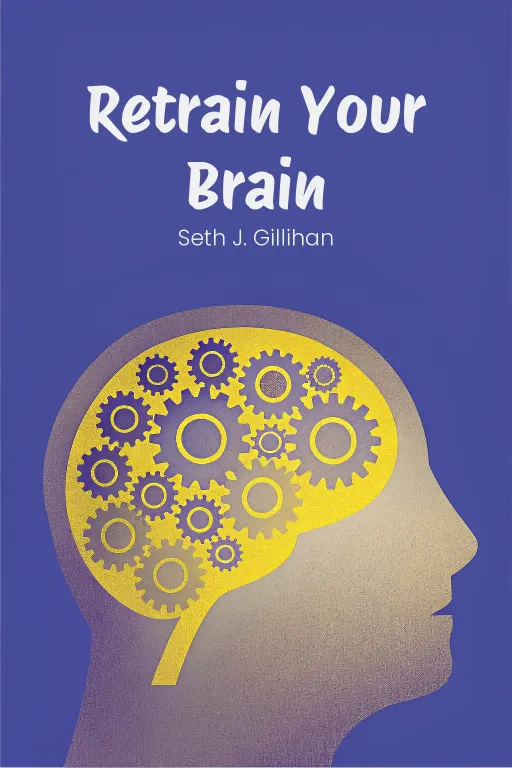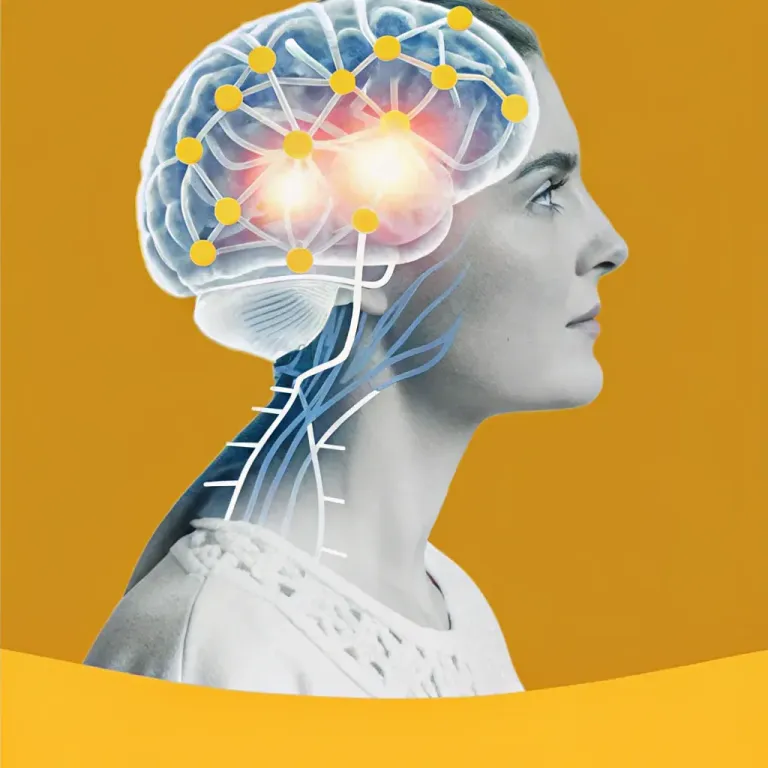
Brain Power: Women's Health Edge
Podcast by Beta You with Alex and Michelle
The Groundbreaking Science Empowering Women to Maximize Cognitive Health and Prevent Alzheimer's Disease
Brain Power: Women's Health Edge
Part 1
Alex: Hey everyone, welcome to the show! Today we're diving deep into something that directly affects, well, half the population, and indirectly affects the rest—women’s brain health. Have you ever stopped to think about why women are twice as likely as men to get Alzheimer’s? Or why menopause can feel like your brain's stuck in molasses? It turns out there's more to it than just hormones. Michelle: Wait, twice as likely? Seriously? How have we missed this for so long? I mean, most people probably still think brain health is just… brain health, one size fits all, right? Alex: Exactly! That’s why Lisa Mosconi’s book, “The XX Brain”, is such a game changer. It not only lays out the science but also points out the huge blind spots in how we think about women's cognitive health. From those big hormonal shifts during menopause to the often-overlooked mental strain of caregiving, Mosconi explains why women face these very specific challenges—and, more importantly, what they can actually do about it. This isn’t just about dealing with problems as they pop up, it's about taking proactive steps, tailored to women's unique biology and life stages. Michelle: So, we’re talking about everything, right? From how estrogen actually messes with neurons to how something as simple as what we eat can affect our brainpower? Let me guess… more kale? Alex: Not just kale, although yes, kale does make an appearance! But it goes way beyond that. Today, we’re going to break this down into three key areas. First, we'll unravel the biological and hormonal stuff that makes women's brains both incredibly powerful and, in some ways, more vulnerable. Then, we’ll look at how getting personalized health check-ups can help us spot risks early on. And finally, we'll talk about how making smart lifestyle tweaks—stuff like nutrition and managing stress—can be super effective tools for keeping our brains healthy for the long haul. Michelle: Okay, so it’s like…designing the brain's blueprint, checking for any cracks, and then reinforcing everything. Got it. Alright, let's see if you can convince me that diet and habits actually have that much power over our brains. I remain slightly skeptical. Alex: Oh, I will! But just a heads-up—the science might just blow your mind. Ready to jump in?
Understanding Women’s Unique Brain Health
Part 2
Alex: So, Michelle, after teasing the biological and hormonal side of things, I can see you're curious about what makes women's brains different. You picked up on estrogen. It's not just a hormone, it's like... brain fuel, right? Michelle: Exactly! I mean, estrogen, yeah, we know about it, but brain fuel? That's a new angle. Alex: Absolutely, Michelle. Estrogen isn't only about reproduction; it's a real powerhouse for the brain. It boosts neuroplasticity, which is the brain's ability to adapt, form new connections, and even recover from injuries. Think of it as the brain upgrading its software. Plus, estrogen protects neurons from damage and manages stress responses. It's like having a personal cognitive health bodyguard. Michelle: Okay, a bodyguard. But then menopause arrives, and suddenly the bodyguard just... vanishes? Right when you need them most, of course. Alex: Essentially, yes. During menopause, estrogen levels plummet, and the result is significant. This hormonal shift can lead to what many women describe as “brain fog” or memory problems. And it's not just subjective—it shows up in brain scans. Imaging studies show that post-menopausal women have reduced glucose metabolism in the brain, and glucose is like high-octane rocket fuel for those neurons. Michelle: Wait, so their brains are literally slowing down because they can’t process sugar as efficiently? I mean, that sounds pretty rough. Alex: Precisely. And this drop in activity makes the brain more susceptible to neurodegenerative diseases, like Alzheimer's. That's why Dr. Mosconi emphasizes that menopause isn't just a reproductive milestone; it's a major cognitive turning point as well. Michelle: Okay, but, and I mentioned it earlier, this APOE-4 gene thing you brought up… that sounds like playing genetic roulette. What’s the deal with that, and why does it seem to hit women harder? Alex: That's a really insightful question. APOE-4 is a genetic marker that increases the risk of Alzheimer's for both men and women, but here's the twist: women with this gene tend to show earlier and more pronounced brain shrinkage in regions crucial for memory, such as the hippocampus. Hormones are key here, too. Research suggests that declining estrogen makes those vulnerabilities even worse. Michelle: So, if you’re a woman with this gene, it's like drawing the short straw twice? Alex: Unfortunately, yes. Women basically face a double whammy: a genetic predisposition combined with these hormonal changes. That's why advocating for research to better understand these dynamics is so critical. Historically, medical studies didn't even consider gender differences. As Dr. Mosconi points out, that’s left significant gaps in how we understand and treat these risks. Michelle: Okay, so hormones are a big part of the picture. But clearly life doesn't make it that much easier, right? I’ve heard about this "caregiver stress" issue – how does that fit in? Alex: Oh, it adds a huge layer of complexity. Women are overwhelmingly more likely to be caregivers, whether it's for children, aging parents, or even partners. That role often comes with chronic stress, which elevates cortisol levels. And guess what cortisol does to the brain? Michelle: I’m guessing it’s not boosting memory function. Alex: Exactly. Elevated cortisol can actually shrink the hippocampus—the brain's memory center—and impair concentration. And what's worse, chronic stress increases the risk for conditions like anxiety and depression, which, of course, also affect cognitive function. Michelle: So basically the societal expectation for women to "do it all" is literally straining their brains. That's…brutal. It really is. Alex: It is. This isn't just about finding balance or running a bubble bath; it's about systemic change. Women need support structures and more equitable distributions of caregiving responsibilities. You can’t meditate your way out of a broken system. Michelle: The caregiver piece is heavy stuff. So I know something a little lighter – literally lighter – is coming. I need to know about this "baby brain" thing. Is it real or just a convenient excuse moms use when they forget where they put the car keys? Alex: It's real. Pregnancy completely reshapes the brain. During pregnancy, hormonal surges—especially estrogen and progesterone—trigger changes in the brain's gray matter, particularly in areas linked to social cognition and emotional processing. Michelle: So pregnancy doesn’t just build a human; it literally rewires the mother’s brain? That’s…wow. Alex: It does! These changes are thought to strengthen maternal bonding and caregiving instincts, which makes perfect sense from an evolutionary standpoint. But there's a cost: temporary memory lapses and that "mental fog," often called "baby brain." Michelle: Okay, but how much of that is hormones and how much is just plain sleep deprivation? I mean, new parents are basically zombies. Alex: Sleep deprivation definitely makes it worse. On average, new moms rack up about 700 hours of sleep debt during a baby's first year. That lack of rest disrupts cognitive function, emotional regulation, and even immune health. So, yes, hormones set the stage, but lack of sleep delivers the punchline. Michelle: It’s like moms are running a cognitive marathon on fumes. Alex: Exactly—and eventually, the brain adapts. Many of these changes can have long-term benefits for emotional intelligence and multitasking. But during those early months, it can feel like a juggling act gone wrong. Michelle: And then, just when they recover from all that, menopause shows up like that uninvited guest you can’t get rid of. Alex: Precisely. Menopause is another pivotal point, but unlike pregnancy, which can actually enhance some cognitive functions, menopause really challenges the brain across the board. Without estrogen, areas like the hippocampus lose some of their structure and efficiency. That's why women in their forties and fifties often report brain fog and mood swings—they're managing a perfect storm of hormonal shifts and life stressors. Michelle: And all of this isn’t just a personal health issue. This is about how society overlooks women’s overall health, correct? Alex: Absolutely. Dr. Mosconi argues convincingly that women's specific brain challenges have been ignored for far too long. Social norms often add another layer of difficulty. That’s why change needs to come from both individual awareness and systematic shifts, especially in research and advocacy. Michelle: I mean, it’s not just rocket science – it’s neuroscience! You’ve got biology, hormones, stress, and social structures all colliding. Alex: Exactly, that's why understanding women’s brain health is crucial. You can't come up with helpful solutions without fully understanding the complexity of the challenges. So, Michelle, are you ready to explore how we can move from understanding these challenges to actually doing something about it?
Assessment and Personalization of Brain Health
Part 3
Alex: Now that we've covered the basics of women's brain health, let's talk about how women can actually assess their cognitive resilience and make it a “really” tailored plan. This is where Dr. Mosconi's work is “really” amazing, Michelle. This isn't just understanding the challenges; it's about using tools like genetic testing, health evaluations, and lifestyle changes to actually take charge. Michelle: So, instead of just guessing and hoping for the best, we're talking about creating a health plan that's specifically designed for you, right? I'm liking this. But let's start with genetic testing. How important is that? Alex: Genetic testing, especially to see if you have markers like APOE-4, is super important. If you're a woman with the APOE-4 gene variant, your risk of Alzheimer's is much higher than if you're a man with the same variant. Knowing this early on means you can make strategic changes, like adjusting your diet, focusing on specific exercises, and even considering hormone therapy during menopause to lower those risks. Michelle: Wow, so you're saying by finding out early, someone could actually prevent or at least delay Alzheimer's by making some lifestyle tweaks? That's huge. Alex: Exactly. Dr. Mosconi shares stories of women who, knowing this, made changes like switching to a Mediterranean diet—lots of leafy greens, fish with omega-3s, antioxidants—and combining it with aerobic exercise. This can lower inflammation, keep your brain's glucose metabolism stable, and help your overall cognitive health. Michelle: That sounds good on paper, but what if someone gets a genetic test and it's bad news? Like, they have APOE-4. Wouldn't that just make them more worried than empowered? Alex: That's a valid point. Dr. Mosconi stresses that genetic testing is just one piece. It's about empowerment, not fear. A genetic predisposition isn't a life sentence; it’s a heads-up to start planning. It helps women think about health differently—not as something to be scared of, but something they can actively influence with the right info and tools. Michelle: Okay, so genetic markers give you a warning. Then, you add in things like imaging and lab tests, correct? What's the next step after you know your genetic makeup? Alex: That’s where comprehensive health check-ups come in. It's about seeing the big picture. Let’s take metabolic health. If a woman feels tired or has brain fog, lab tests might show high fasting glucose or prediabetes. Addressing this with diet changes—more high-fiber foods or cutting back on refined sugars—can “really” improve cognitive function. Michelle: So it is like treating the source of the problem, not just reacting to the symptoms. What about hormones? We need to talk about those. Alex: Absolutely. Hormonal health is “really” important. Lots of women don’t realize how closely hormones, especially estrogen, affect cognitive processes. During and after menopause, estrogen levels drop, which can cause mood swings, memory problems, and raise the risk of neurodegenerative conditions like Alzheimer’s. Personalized hormone evaluations can help you restore balance, either through menopausal hormone therapy (MHT) or by eating foods like soy and flaxseeds, which have phytoestrogens. Michelle: I bet not all doctors are eager to jump into such customized treatment plans, right? Alex: Exactly. That’s another reason Dr. Mosconi encourages women to take control of their health. Many doctors might not pay enough attention to cognitive issues during menopause. Giving women data from lab tests, genetic screenings, and even brain imaging changes things. It makes the conversation about actual solutions, not just empty reassurance. Michelle: And speaking of useful solutions, inflammation seems to come up in every brain health discussion these days. What’s her view on that? Alex: Chronic inflammation is “really” bad news for cognitive decline. Markers like high-sensitivity C-reactive protein, or hs-CRP, are like warning signs for neurodegenerative risks. If you know inflammation is an issue, you can use anti-inflammatory strategies. Think turmeric, fish with omega-3s, nuts, and even mindfulness, which can help reduce stress-related inflammation. Michelle: Okay, mindfulness. So it's a team effort—diet and stress management working together. But give me a real example of how this all comes together. You must have a case study. Alex: I do. Dr. Mosconi talks about a 55-year-old woman with a family history of Alzheimer’s. Genetic testing showed she had the APOE-4 variant, and lab tests revealed insulin resistance and high inflammation markers. So, instead of waiting for things to get worse, she took action. She adopted a Mediterranean diet, started doing regular low-impact aerobic exercise, and practiced mindfulness to lower cortisol and reduce inflammation. A year later, her lab results were much better, and she felt sharper and had more energy. Michelle: That’s impressive. It sounds like a health investigation, finding the risks before they become serious problems. Alex: Exactly. Each piece of information adds to this, helping create tailored brain health strategy for women. Whether it’s hormone assessments, metabolic profiles, or imaging scans, each tool helps paint a complete picture of her specific risks and strengths. Michelle: You've convinced me it importance of specifics. But let's talk about people who don't have access to genetic testing or fancy lab work. Are they out of luck? Alex: No, absolutely not. Lifestyle factors—good food, regular exercise, stress management—are steps everyone can take. Even without all the high-tech tools, eating anti-inflammatory foods, prioritizing sleep, building a support system, and staying mentally active can make a big difference. It’s about doing what you can with what you have. Michelle: So basically, whether you have access to all the advanced health screenings or just a yoga mat and some turmeric, you can still protect your brain. Alex: Exactly. Dr. Mosconi’s message is clear: personalized, proactive health is achievable. It's about making smart choices and taking control of your cognitive health for the long term.
Taking Charge of Brain Health Through Lifestyle
Part 4
Alex: Okay, so we’ve talked about understanding personalized health strategies, right? Now, let’s get into the practical stuff – what women can actually do to protect and boost their brain health. This is where we put the knowledge into action, you know? Let's dive into how things like diet, exercise, managing stress, and sleep are super important for building a resilient brain. Michelle: Alright, let’s get real here. You keep throwing around buzzwords like “cognitive longevity” and “resilience.” But what does that actually look like, day to day? I can’t imagine it’s just about, oh, drinking green smoothies and hitting the treadmill, right? Alex: Oh, it's so much more than that! Let’s start with the basics – diet. Think of nutrition as cognitive medicine, but not all diets are created equal. One of the best for your brain is the Mediterranean diet. Loads of fruits, veggies, whole grains, nuts, fatty fish, and olive oil. Studies have shown that people who stick to this diet can lower their risk of cognitive decline by around 30%. Pretty awesome, huh? Michelle: Thirty percent? That’s wild! So basically, you’re saying grilled salmon and drizzled with olive oil is a brain booster? Alex: Basically! The omega-3s in fatty fish, like salmon, are super important for keeping your brain’s cell membranes healthy and improving neuron communication. And don't forget your antioxidants – berries, especially blueberries, are amazing for reducing oxidative stress in the brain. Think of it as, like, cleaning up the wear and tear from aging. Michelle: Okay, you've got my attention. Now, can you give me a real-world example? Has this actually worked for people long-term? Alex: Absolutely! There was a really cool study that tracked people for over five years. The ones who consistently ate a Mediterranean diet had about a third less risk of cognitive decline. It’s not just about ditching processed foods; it’s about actually nourishing your brain. Imagine someone having a simple dinner of salmon, roasted veggies, and a handful of walnuts. Boom! Delicious and good for your resilience. Michelle: Fair enough! But let's be honest, nobody's sitting around calculating antioxidants when they're grabbing a snack. What’s an easy thing someone could do tomorrow? Alex: Baby steps! Swap white bread for whole grain, trade chips for walnuts, or toss berries into your breakfast. These little changes accumulate over time, leading to big improvements in your cognitive state. Michelle: Seems doable. Moving on, let's talk movement. I know exercise is linked to mental clarity, but how? Is it just about better blood flow to the brain, or is there something deeper happening? Alex: Excellent question. It’s not just about circulation, though that's part of it. Exercise releases this neat protein called brain-derived neurotrophic factor, or BDNF. It helps grow and strengthens neural connections. Basically, Miracle-Gro for your brain! Michelle: Miracle-Gro? I love it! So what kind of exercise works best? Are we stuck with CrossFit, yoga, or is walking the dog enough? Alex: Aerobic exercise, like walking or cycling, has shown the most consistent positive impact on cognitive health. There was that study on middle-aged women – just three 30-minute brisk walks a week improved executive functions, like planning and problem-solving, by like 18%. Even simple things can make a big difference. Michelle: Alright. Now, what about those who aren't big on running or cycling? Can we sneak in some low-impact movement, or do we need to hit the gym hard? Alex: Absolutely. Strength training is just as vital. It supports skeletal health, balances blood sugar, and even supports cognitive functions. Even bodyweight moves like squats or using resistance bands can be super effective. Michelle: So, get the heart rate up, do a few lunges, and you're set? Alex: Pretty much. The secret is consistency. Aim for 150 minutes of moderate aerobic activity each week, and two strength-training sessions. It’s not about running a marathon. It’s about sustainable habits. Michelle: Got it. Next, let's talk about stress – we've all felt it. I hear cortisol is the brain's worst enemy. What’s the deal, and how does that tie to brain health? Alex: Chronic stress is a huge threat that people don't talk about enough. When your cortisol levels are too high for too long, it can damage the hippocampus, which is key for memory and learning. That’s where mindfulness and stress management come in. Michelle: Is mindfulness actually effective, or it's just a trendy thing? Alex: Oh, it works! Check this out: A study showed that women who did mindfulness meditation for 30 minutes daily over eight weeks saw an increase in gray matter in the hippocampus, along with better memory and focus. It’s not only removing stress, but also building protective stuff in your brain. Michelle: So, basically, you can meditate your way to a stronger hippocampus? Alex: In a way, yes. Yoga is also fantastic. It combines mindfulness with gentle movement. That means it can help lower stress and boost sleep quality. Doing it just twice a week can make a big difference. Michelle: Sounds legit! But honestly, how do people find the time for any of this when life's already jam-packed? Alex: Totally get that. It’s not about completely changing your schedule, but more about integrating little habits, like five minutes of deep breathing or unwinding with some yoga. Consistency, not perfection! Michelle: Speaking of unwinding... let’s talk sleep. I've heard lack of sleep can turn your brain into mush. Alex: Absolutely. While you’re asleep, your brain cleans out toxic waste like beta-amyloid, which can lead to Alzheimer’s if it builds up. But here’s the thing: you need good sleep, not just hours in bed. Michelle: Beta-amyloid? Sounds like a villain from a comic book. So how can we help our brain do its thing at night? Alex: Hormonal changes during menopause can mess with women’s sleep cycles, meaning less time in those deep, restorative stages. And stress and screen time don't help. But there's always hope – having a consistent bedtime routine can be game-changing. Michelle: Like what? What's the secret sauce here? Alex: Dim the lights a couple of hours before bed, step away from screens an hour before, and create a calming habit, like sipping chamomile tea. Even just stretching or reading can tell your brain it’s time to wind down. Michelle: Let me guess – consistency is key again? Alex: Exactly. Your brain loves routine. Aim for seven to eight hours every night, and if you still have sleep problems, talk to a doctor to figure out what’s going on. Michelle: So, If I understand it correctly, the recipe for a healthy brain comes to Mediterranean meals, consistent movement, mindfulness for managing stress, and enough sleep. Did I miss anything? Alex: That’s the core stuff. What’s great about this is how it all connects. What you eat affects your sleep, exercise boosts your memory, and managing stress keeps inflammation down. It’s a holistic thing that helps women take charge of their brain health. Michelle: Alright, Alex, you’ve clearly explained the brain health process . But now I’m curious — what’s the secret ingredient that brings it all together? Or is it really this simple?
Conclusion
Part 5
Alex: You know, Michelle, it really boils down to this: women's brain health isn't some unsolvable enigma. It's more like a complex puzzle where all the pieces—hormones, lifestyle, biology, and proactive care—fit together. And what Lisa Mosconi's work “really” highlights is that we actually have the tools to protect and even boost our cognitive resilience through strategies tailored just for us. From understanding how critical hormones are, to using diet, exercise, and even stress management as allies for our brains, the science is pretty clear: these small, intentional tweaks can “really” lead to a lasting transformation. Michelle: So, less about chasing those quick fixes and more about building habits that sync up with your biology, your surroundings, and even your genes, huh? Honestly, that's empowering, but it’s also kind of a wake-up call. Whether it's getting tested, giving that Mediterranean diet thing a shot, or just getting a handle on stress, it feels like the “real” key is taking charge now, before the potential risks become your reality. Alex: Precisely. Women deserve a proactive, personalized approach to their cognitive health—one that's grounded in science and self-awareness. The perfect time to start is right now, and the power? It's already in your hands. Ultimately, you should honor your brain by giving it the care it truly needs. Michelle: Nicely put, Alex. So, here's a toast to brains that flourish and lives that stay sharp as a tack! Let's keep changing the narrative, one well-informed decision at a time.


